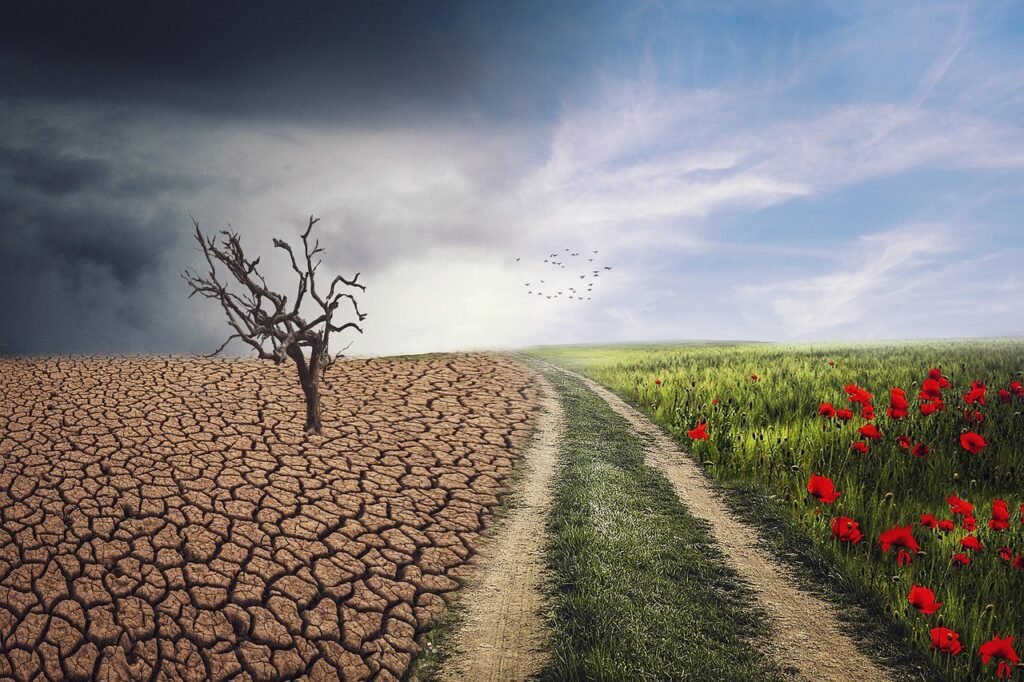How Do Kenyans View The Impact Of Climate Change?
In this article, we explore the intriguing perspective of Kenyans on the impact of climate change. As individuals who rely heavily on the land for their livelihood, the effects of changing weather patterns and diminishing natural resources have not gone unnoticed. With a friendly and open approach, we delve into the thoughts, concerns, and hopes of Kenyans as they navigate the challenges presented by climate change in their daily lives. Join us as we discover how this vibrant and resilient community views the ever-changing climate around them.
Kenyans’ Perception of Climate Change
Climate change is a pressing issue that affects people all over the world, and Kenyans are no exception. As a country located in East Africa, Kenya experiences a diverse range of climate patterns, from arid and semi-arid regions to highland areas. Kenyans understand the significance of climate change and its potential impact on various aspects of their lives, including daily routines, agriculture, water resources, wildlife and biodiversity, health, energy sources, urbanization, economy, and the government’s response.

This image is property of pixabay.com.
Awareness and Understanding
Kenyans are increasingly becoming aware of the realities of climate change through various channels, including public awareness campaigns, education, and personal experiences. Public awareness campaigns conducted by government agencies, non-profit organizations, and international collaborations play a crucial role in disseminating information about climate change and its implications. These campaigns often focus on raising awareness about carbon emissions, deforestation, and the importance of sustainable practices.
Education is another key factor in enhancing understanding and raising awareness about climate change. Schools and universities have started incorporating climate change topics into their curriculum, helping to educate the younger generation about environmental issues. Besides formal education, Kenyans also learn from their communities and traditional knowledge, passed down through generations. This collective understanding contributes to a more comprehensive perspective on climate change in Kenya.
Perceived Impact on Daily Lives
The changing climate patterns have a direct impact on the daily lives of Kenyans. The frequency and intensity of extreme weather events, such as droughts, floods, and heatwaves, have increased in recent times. This has disrupted agricultural activities, affected food security, and created water scarcity issues. Changes in climate have also led to the displacement and migration of communities, as certain areas become uninhabitable due to environmental degradation.
Additionally, the health risks associated with climate change are a growing concern among Kenyans. Increased disease outbreaks, malnutrition, and the impact on mental health are some of the major consequences. Furthermore, access to healthcare services becomes challenging in the face of changing climate patterns.

This image is property of pixabay.com.
Perceived Impact on Agriculture
Agriculture is the backbone of Kenya’s economy, with a significant portion of the population relying on farming for their livelihoods. Understanding the potential impact of climate change on agriculture is crucial for Kenyans. Changes in climate patterns, such as erratic rainfall and prolonged droughts, have a direct influence on crop yield and productivity. This poses a threat to food security for both rural and urban populations.
Livestock farming is also affected by climate change, as extreme temperatures and changes in rainfall patterns affect the health and productivity of animals. Farmers have been forced to adapt to these changes by exploring new farming techniques, such as drought-resistant crop varieties, water management strategies, and alternative livestock feeding methods. Nevertheless, adaptation efforts require financial resources and technical support, which can be challenging for small-scale farmers in Kenya.
Perceived Impact on Water Resources
Water scarcity and the degradation of water quality are major concerns for Kenya, exacerbated by climate change. Droughts and reduced rainfall contribute to water scarcity, making access to clean and reliable water a daily struggle. This directly affects domestic use, agriculture, and various industries, including fishing. Reduced water availability impacts fishing communities and aquatic ecosystems, leading to a decline in fish populations and threatening the livelihoods of fishermen.

This image is property of pixabay.com.
Perceived Impact on Wildlife and Biodiversity
Kenya is renowned for its rich wildlife and diverse ecosystems, including national parks and reserves. However, climate change poses a significant threat to these valuable resources. Changes in climate patterns have resulted in the loss of habitats, affecting not only wildlife but also the iconic endangered species such as elephants, rhinos, and lions. Climate change also disrupts migration patterns, which impacts the delicate balance of ecosystems.
To combat these challenges, Kenya has implemented conservation efforts, including the establishment and expansion of protected areas, wildlife corridors, and initiatives aimed at reducing human-wildlife conflicts. These efforts are crucial for protecting the country’s invaluable biodiversity and promoting sustainability.
Perceived Impact on Health
Climate change has far-reaching implications for human health in Kenya. Increased disease outbreaks, such as malaria and waterborne illnesses, are a direct consequence of changing climate patterns. Additionally, malnutrition becomes a significant concern when crops fail due to droughts or floods. The impact on mental health is often overlooked but equally important, as climate-induced stress and anxieties are on the rise.
Access to healthcare services becomes even more challenging during extreme weather events or when communities are displaced. Kenyans recognize the importance of prioritizing healthcare infrastructure and services in order to mitigate the health risks associated with climate change.
Perceived Impact on Energy Sources
The reliance on fossil fuels for energy is a significant concern for Kenyans. The burning of fossil fuels contributes to greenhouse gas emissions, exacerbating climate change. However, there is increasing recognition of the need to transition towards renewable energy sources. Kenya has made significant progress in this regard, particularly in the development of geothermal, wind, and solar energy projects. Access to electricity continues to be a priority, particularly in rural areas where energy poverty is prevalent.
Affordability of energy is also a crucial consideration, as energy costs impact households, businesses, and industries. Balancing the need for affordable energy while transitioning to sustainable sources is a challenge that Kenyans face.
Perceived Impact on Urbanization
The rapid urbanization in Kenya presents unique challenges in the face of climate change. Cities are vulnerable to the impacts of extreme weather events, such as flooding, which can cause significant damage to infrastructure and disrupt normal life. Slum conditions exacerbate these vulnerabilities, as communities residing in informal settlements often lack access to essential services and face increased health risks.
The urban heat island effect is another consequence of climate change in urban areas, where temperatures are higher compared to surrounding rural areas. This poses health risks to urban populations, particularly vulnerable groups such as the elderly and those with respiratory conditions. Climate-resilient infrastructure and sustainable urban planning are vital for minimizing the negative impacts of climate change on cities.
Perceived Government Response
The Kenyan government has recognized the importance of addressing climate change and has formulated climate change policies aimed at mitigation and adaptation. These policies outline the country’s commitment to reducing greenhouse gas emissions, promoting sustainable practices, and enhancing resilience to climate change impacts. However, the effectiveness of these policies relies on enforcement and implementation, which is an ongoing challenge.
Furthermore, collaboration at the national and international levels plays a crucial role in tackling climate change. Kenyan institutions and organizations work closely with international partners and participate in global initiatives to address climate change issues. Allocation of resources and funding for climate change initiatives remains a critical area that needs attention to ensure the successful implementation of climate change policies.
In conclusion, Kenyans have a comprehensive understanding of climate change and its potential impacts on various aspects of their lives. From daily routines to agriculture, water resources, wildlife, health, energy sources, urbanization, and the economy, Kenyans are aware of the challenges posed by climate change and the need for proactive measures. Public awareness campaigns, education, and personal experiences contribute to this awareness, fostering a sense of responsibility towards creating a sustainable future. The government’s response and collaborative efforts at both national and international levels are vital in addressing the impacts of climate change and ensuring a resilient and prosperous Kenya.






